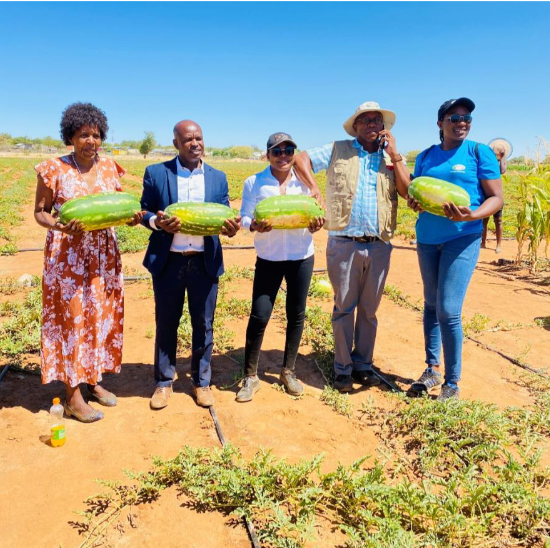
By: Juliana Iikela
The parliamentary standing committee on natural resources which recently paid a follow-up visit
to the Fransfontein Community Garden in the Kunene region has found that the garden is
flourishing.
The N$12.3 million Green Climate Fund (GCF) funded project was established by the
Environmental Investment Fund of Namibia (EIF) along with the ministry of agriculture, water
and land reform as part of the Improving Rangeland and Ecosystem Management Practices of
Smallholder Farmers Under Conditions of Climate Change in Sesfontein, Fransfontein, and
Warmquelle Areas (IREMA Kunene Project).
Chairperson of the standing committee Tjekero Tweya expressed delight that the garden is green
and is under full horticulture production. He urged the garden management committee,
beneficiaries and all stakeholders involved to work hard.
Tweya exhorted all to ensure that the garden remains productive so that it continues to serve the
Fransfontein settlement and the surrounding areas He further called for an exit strategy and good
governance to ensure the sustainability of the community garden beyond the project stage.
During the visit, the standing committee met with Magrietha Haradoes, a local farmer and
beneficiary of the project’s Small Stock Revolving Scheme (SSRS). She received 20 ewes and
one ram from the project in November 2020.
She now has 47 goats and has already revolved five ewes through the revolving scheme.
"I have achieved this through dedication, hard work and commitment, as I herd the goats by
myself," Haradoes said.
Last month, the Fransfontein Community also received a community garden, energy-efficient
stoves, goats and rehabilitated boreholes.
Speaking on behalf of the Kunene governor, former National Council Member Johannes
Hishidimbwa Antsino, said: "Agriculture is close to our hearts and there is no doubt that the
Fransfontein Community Garden will enhance food security in the settlement, and has the
potential to generate substantial income for the community.”
Antsino said the project is addressing some of the challenges that the government alone cannot
attend to.
“The more we consume products from other countries, the more jobs we are creating for them.
Therefore, such a community project is worth emulating in other areas of the Kunene region and
Namibia at large," he said.
EIF's executive for business strategy Aina-Maria Iteta applauded all the stakeholders for the
continuous support provided to the community garden.
She urged law and policymakers to come up with policies and strategies that will assist local
farmers to offset their products through local markets.
The IREMA project was established to address climate-driven vulnerabilities.









Comments